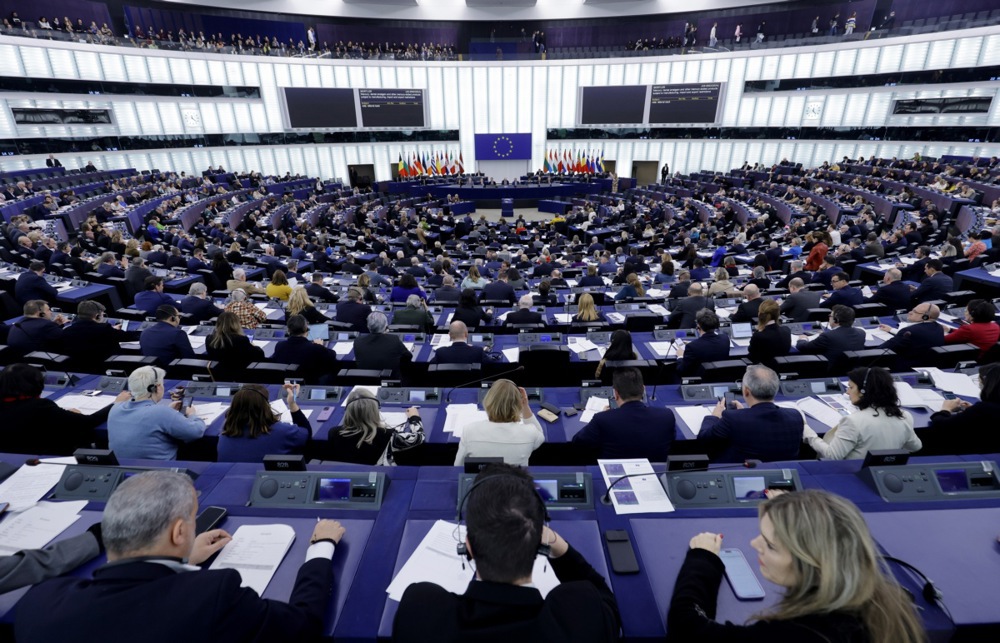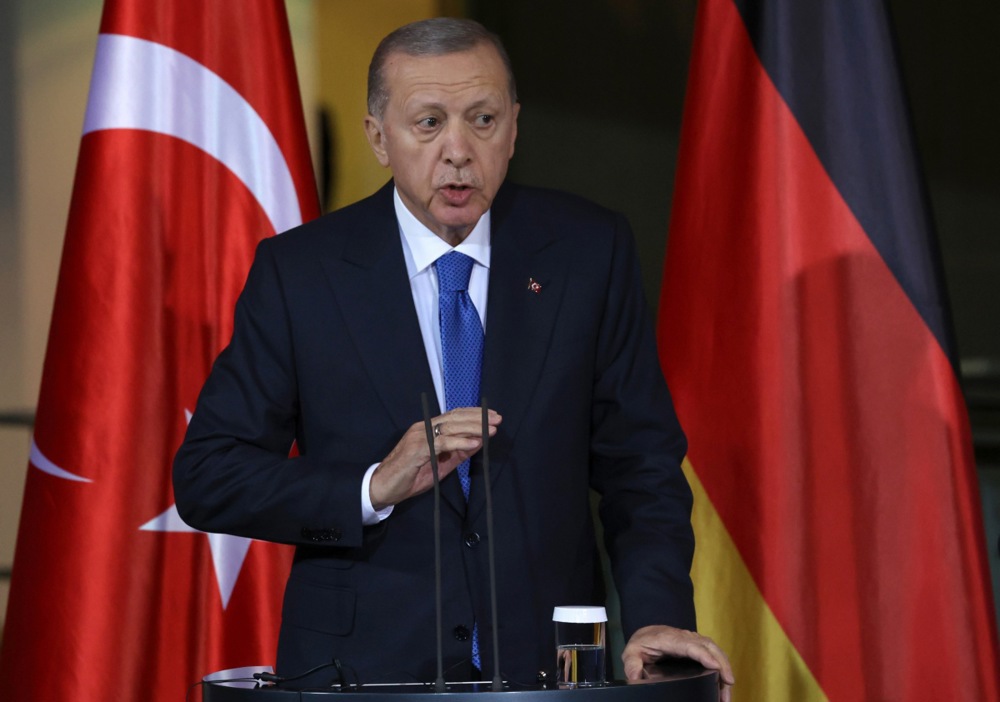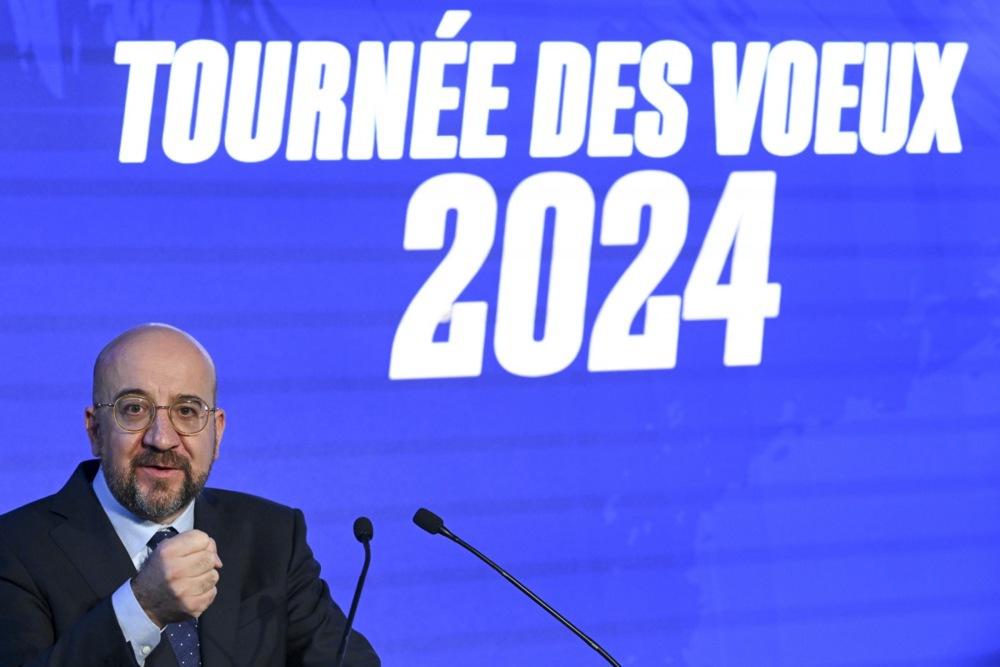The European Commission is easing the demands made on agriculture while at the same time, regarding climate targets for 2040, it wants a 90 per cent net emissions cut.
To many, that seems to be a case of mixed messaging.
Amid the threat of more angry farmers rapping on the doors of European institutions, the EC’s climate ambitions have been revealed.
The European Union intends to be carbon-neutral in 26 years. By 2030 it wants to reduce greenhouse gas emissions by 55 per cent compared to 1990. By 2040 it wants a cut of 90 per cent compared to the same year, marking an acceleration of the current trajectory.
The EC, under the long-trumpeted Green Deal proposals, claims it is following the recommendations of a scientific committee and that its policies are the cheapest available in the long term, in order to meet the objectives of the Paris Climate Agreement.
According to this, global warming should thus be kept to a maximum of 2° Celsius and, if possible, 1.5°C.
At the same time, the EC is eliminating any reference to methane emission reductions, according to The Financial Times. That is despite the fact that 10 per cent of greenhouse gas emissions in Europe are generally attributed to agriculture.
Earlier versions of the texts were aiming for a 30 per cent cut in agricultural pollution. Now, the EU wants “all sectors” to make efforts.
Compared to previous drafts, the modified version of the plans – which may still be amended – presents agriculture in a much more favourable light. It also emphasises the importance of agriculture regarding the EU’s “food sovereignty”.
EC President Ursula von der Leyen said on February 6: “Our European food production system is unique. The products in our supermarkets reflect the variety of our cultures and traditions.
“Europe has the healthiest and highest-quality food in the world, thanks to our farmers. They play a central role in this system, and of course, they must be paid fairly for that.”
Expanding on this, recommendations for citizens to make changes to their behaviour, such as regarding meat consumption, along with efforts to end so-called fossil-fuel subsidies, have been scrapped.
Plans to sharply reduce the use of pesticides under the EU Pesticides Regulation (SUR) were also watered down as they have “become a symbol of polarisation”, according to Von der Leyen in her speech in Strasbourg.
The EC initially wanted to curtail the use of pesticides in Europe, ostensibly to lower the ecological footprint of farming, but the European Parliament and some Member States opposed that.
In reference to such, Von der Leyen said: “To move forward, more dialogue and a different approach is needed. And on this basis, the Commission could make a new proposal with much more matured content and with the stakeholders together.”
The European People’s Party (EPP) praised her declaration. Alexander Bernhuber, the EPP’s pesticide negotiator, stated: “This is a first sign that the Commission will work with farmers to tackle climate change, rather than against them.”
It is irresponsible to jeopardise European food production in the face of current crises through unrealistic requirements.
We are ready to work with the @EU_Commission for effective climate protection and #FoodSecurity!
More from Alexander Bernhuber: https://t.co/7dPiXHEfSV pic.twitter.com/zSSfdXYeQs
— EPP Group (@EPPGroup) February 6, 2024
Many observers noted the EC’s apparent shift in stance was most likely in response to recent widespread demonstrations by angry farmers and the fact that von der Leyen is probably eyeing a second term as EC boss.
The Green Deal, the underlying proposed legislation that was once touted as Europe’s way forward environmentally, has been contested for months now, with many in the EPP breaking ranks with fellow member von der Leyen.
European elites were angry at EPP President Manfred Weber, who led the charge against the Green Deal, accusing him of “working with the far-right”.
Nonetheless, the prevalent sentiment ultimately shifted towards the opposition and against the plans.
Despite the earlier reversal of the ambitious “green” initiatives, the farmers’ protests appear to have dealt the project a brutal blow.
It’s the polls that swung it: EU leaders watered down the Green Deal in fear of Europe’s populist tide, writes @Raphfel. https://t.co/KEPUVGkupF
— Brussels Signal (@brusselssignal) December 18, 2023
Speaking to Brussels Signal, spokesperson for the European Greens Helena Hellström said the new SUR was the centrepiece of the Farm-to-Fork Strategy for a sustainable food system and the Green Deal. Therefore, her group wants it back on the agenda.
“The Greens will fight for this for the next elections,” Hellström said.
Problems were already brewing last November, she noted, as there was no longer much support for the initiative in Parliament.
“Right-wing and centrist parties killed it, they refused to refer it back to committee, making things difficult.”
According to her, the “resistance” against the Green Deal does not come from the EC but, rather, from right-wing voters in Parliament and the European Council.





